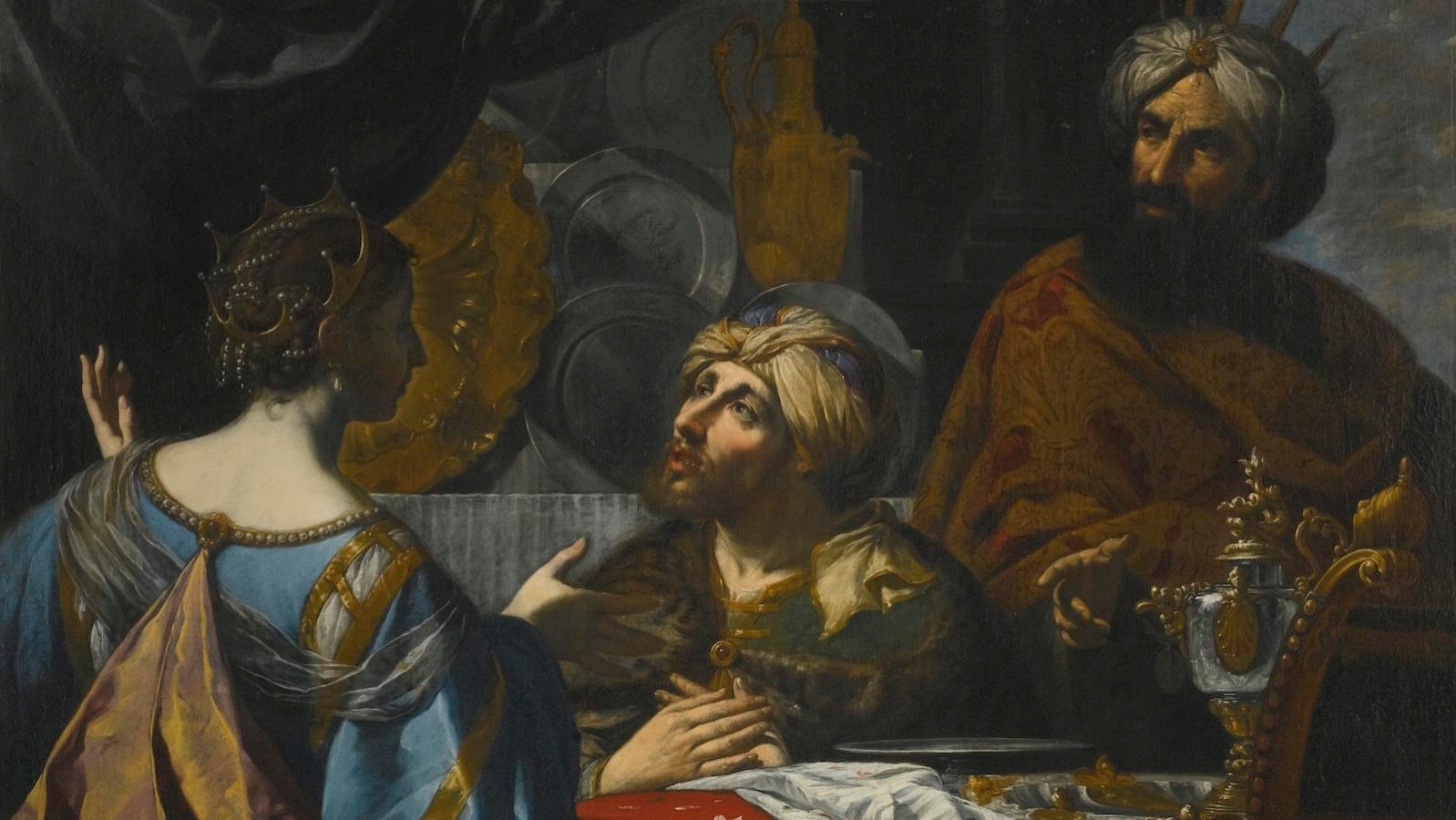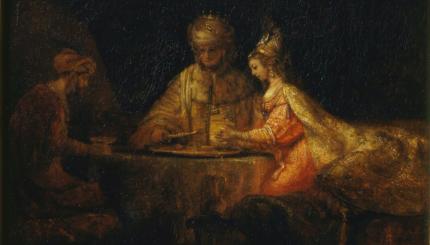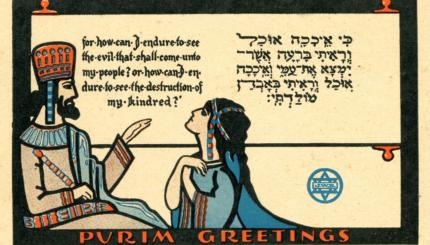The Purim story is the Book of Esther; which is a part of the Ketuvim or Writings (also called the Hagiographa), the third section of Tanach [the Hebrew Bible]. Read the full Book of Esther in Hebrew and English here.
Outline of the Purim Story
- King Ahasuerus dethrones Queen Vashti.
- Esther is crowned queen after winning a beauty contest.
- Mordecai (Esther’s cousin) uncovers a plot to kill the king and reports it.
- King Ahasuerus promotes Haman, making him more powerful than all the other officials.
- Mordecai refuses to bow before Haman [a close confidant of the king].
- Haman seeks to destroy the Jews after his run-in with Mordecai.
- Mordecai appeals to Esther to save her people. Esther approaches King Ahasuerus and invites him and Haman to a banquet.
- Mordecai is honored for having saved the king’s life. Esther entertains the king and Haman, and invites them to a second banquet.
- Esther pleads for her people at the second banquet. She accuses Haman.
- The king grants Esther’s request and condemns Haman to die on the gallows that he built for the Jews.
- The Jews defend themselves throughout Persia [against those following out the decree to destroy the Jews].
- The holiday of Purim is established.
- Mordecai advances to a position of importance.
Central Themes in the Book of Esther
Esther 3:8 is a classic statement of anti-Semitism, perhaps the first such written anywhere. It reads:
Haman then said to King Ahasuerus, ‘There is a certain people, scattered and dispersed among the other peoples in all the provinces of your realm, whose laws are different from those of any other people and who do not obey the king’s laws; and it is not in Your Majesty’s interest to tolerate them.”
Haman tells the king that, because the Jews are different, they must be suspect. He then lies to compound the felony, for indeed the Jews did follow the laws of the land. Unfortunately, this type of reasoning has, again and again throughout Jewish history; been the unwarranted rationale for the persecution of Jews.
The word God is not mentioned in the entire Book of Esther. This omission exists in spite of the fact that throughout the Bible, God’s intervention is ever present. Mordecai does, however, make an indirect reference to God when he speaks with Esther about intervening with the king:
With your help, My Jewish Learning can provide endless opportunities for learning, connection and discovery.
…if you keep silent in this crisis, relief and deliverance will come to the Jews from another quarter, while you and your father’s house will perish. And who knows, perhaps you have attained to royal position for just such a crisis. (Esther 4:13-14).
In other words, not only does Mordecai suggest that God might indeed play an active role in resolving the crisis, but further suggests that Esther’s becoming queen may have been the work of God, Who was preparing for the day when the Jewish people would face crisis. Another explanation for the absence of the name of God is that since the book was written in scroll form and sent to Jews throughout Persia, the name of God was omitted in case the scroll was desecrated in any way.
Whether the events related in the book are factual or not, the Book of Esther is more truthful than many so-called historical works.
Unfortunately, the story has been repeated throughout Jewish history on many occasions, but without the benefit of a hero or heroine. The Book of Esther thus serves as an allegory describing the life and lot of the Jewish people in an alien and hostile world.
Watch this video of the Purim story:
Reprinted with permission from Teaching Jewish Holidays: History Values and Activities (A.R.E. Publishing).
Purim
Pronounced: PUR-im, the Feast of Lots, Origin: Hebrew, a joyous holiday that recounts the saving of the Jews from a threatened massacre during the Persian period.
Tanach
Pronounced: tah-NAKH, Origin: Hebrew, Hebrew Bible (an acronym for Torah, Nevi'im and Ketuvim, or the Torah, Prophets and Writings).



